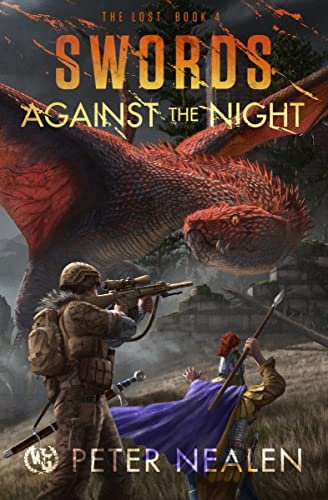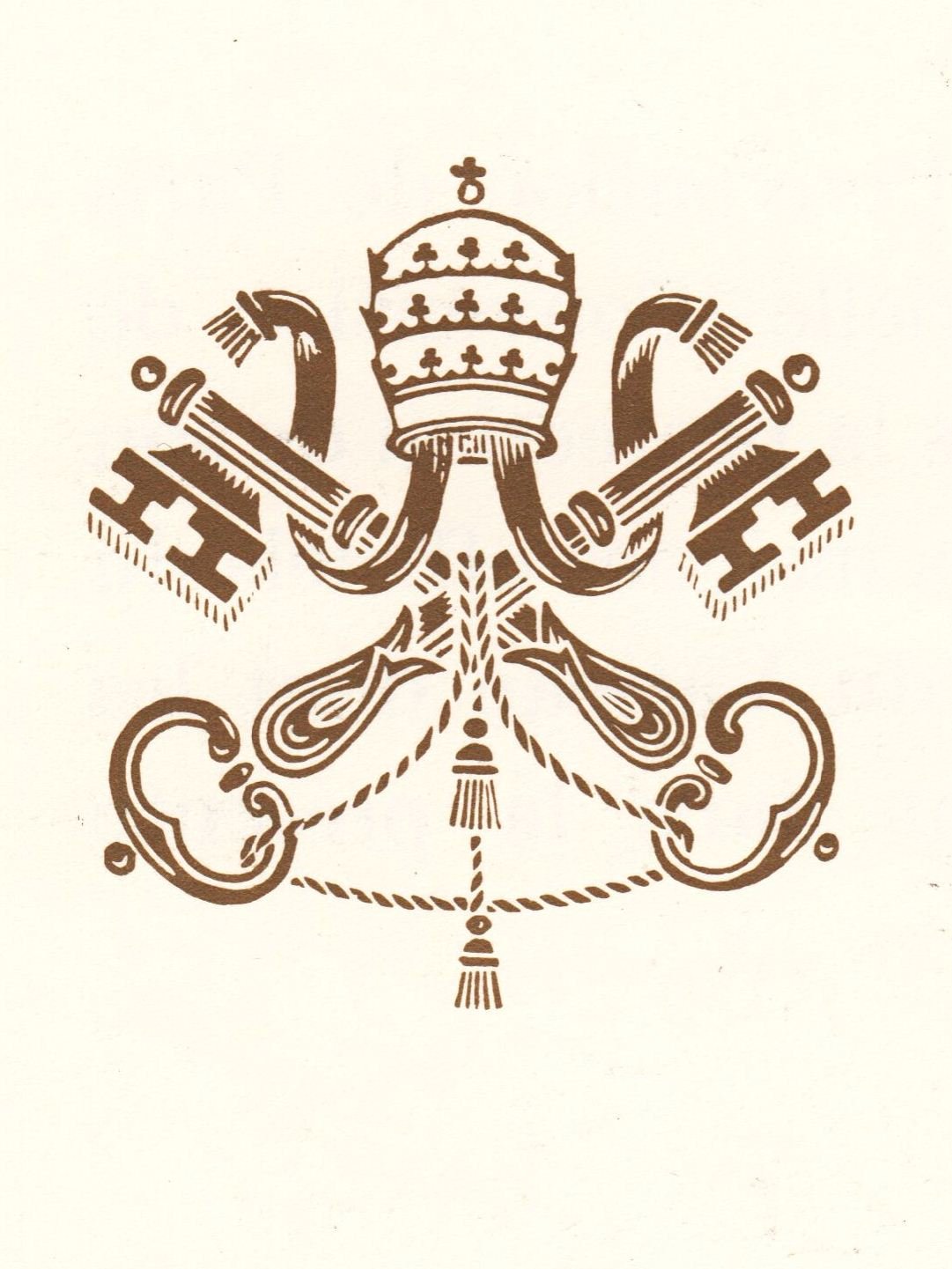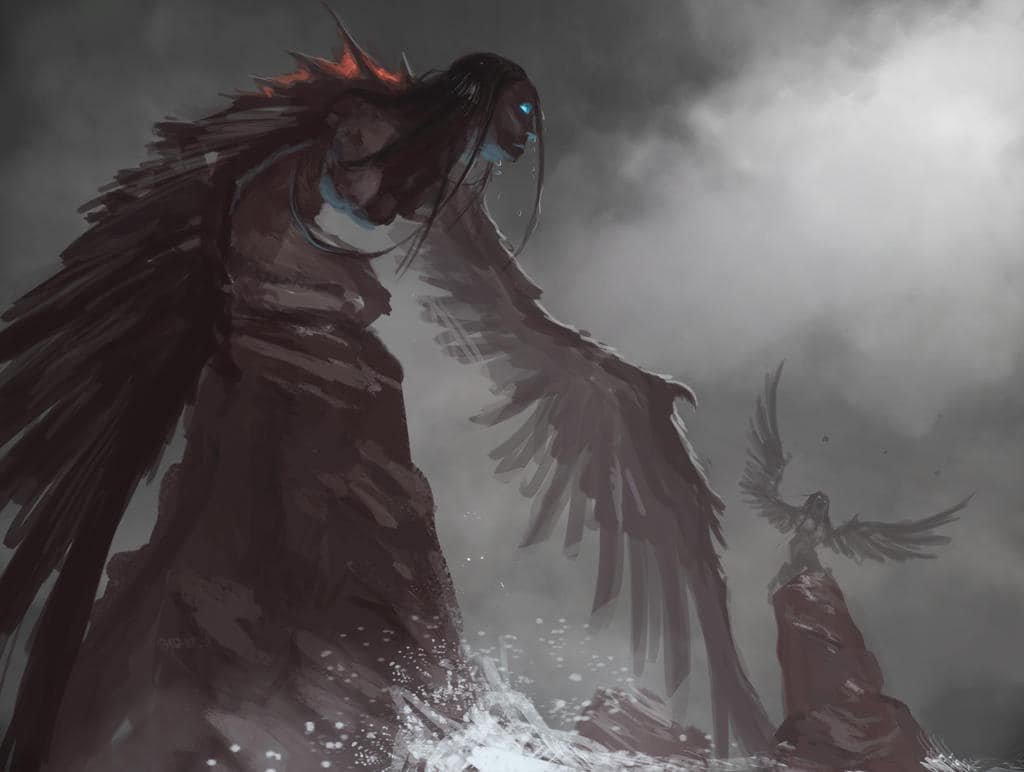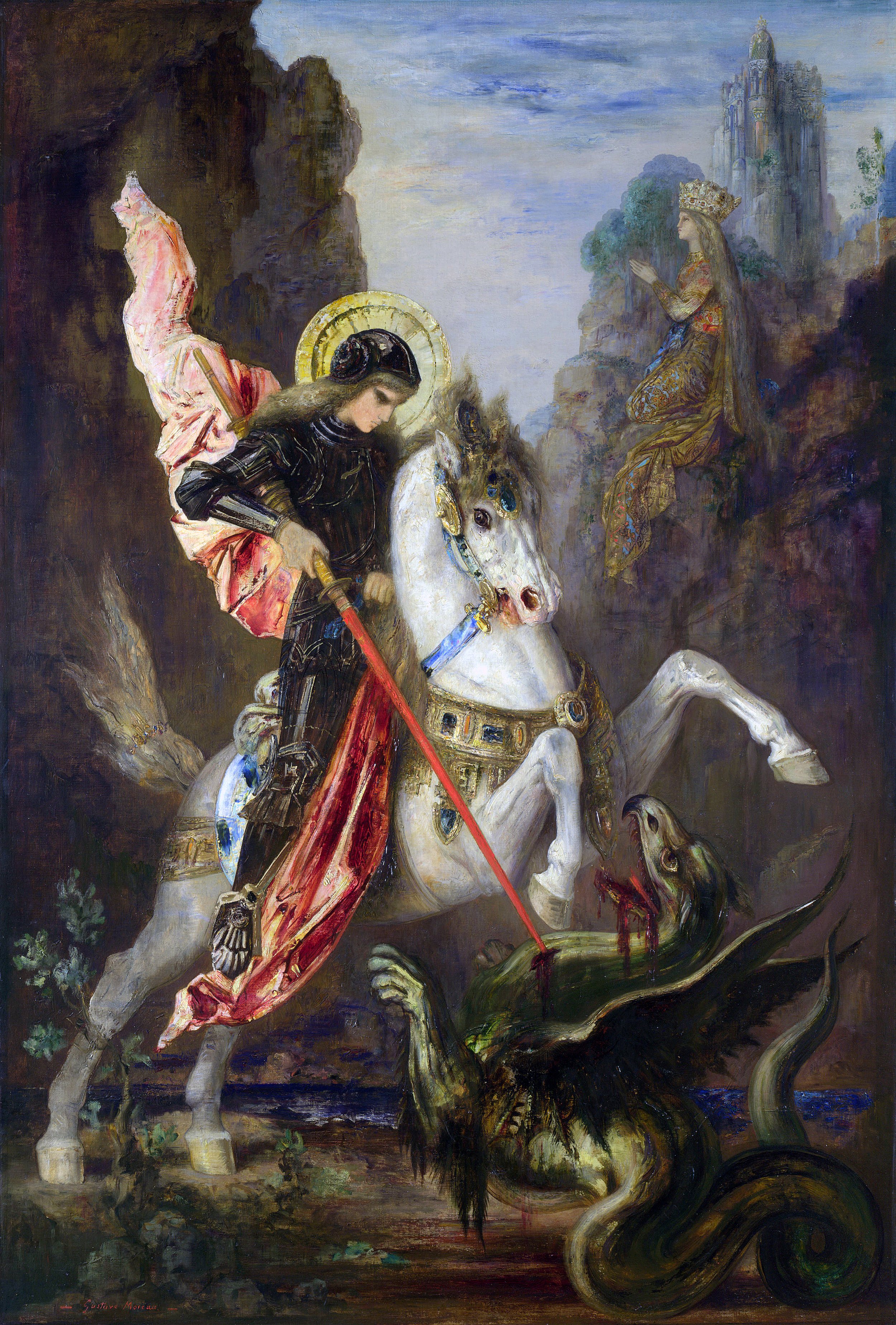Swords Against the Night: The Lost Book 4
When I wrote my review of Darkness and Stone, book 3 in Peter Nealen’s “The Lost” series, I said Nealen had done a great job wrapping it up. Nealen wrote me and let me know that there was plenty more where that came from. I still think Nealen made a reasonably complete arc in those first three books, but I’m not at all sad to stand by Conor McCall again as he brings justice to the unholy things that terrorize the world.

Swords Against the Night: The Lost Book 4 by Peter Nealen WarGate Books July 24, 2022

In this fourth volume, Nealen offers us a reflection on what it means to “pick up your cross and follow me”. This is a figure of speech that comes from the Gospel of Matthew, where Christ has just commended Peter, giving Peter the keys to heaven, considered by Catholics the beginning of the Papacy. Immediately afterward, Peter, perhaps emboldened by this event, takes Christ aside and tries to convince him to avoid his death on the Cross. This event results in Christ’s famous rebuke to Peter “Get behind me Satan!”
The phrase “pick up your cross and follow me” follows as Christ lays out what it means to be his disciple:
24 Then Jesus said to his disciples, “Whoever wishes to come after me must deny himself, take up his cross, and follow me. 25 For whoever wishes to save his life will lose it, but whoever loses his life for my sake will find it. 26 What profit would there be for one to gain the whole world and forfeit his life? Or what can one give in exchange for his life? 27 For the Son of Man will come with his angels in his Father’s glory, and then he will repay everyone according to his conduct.28 Amen, I say to you, there are some standing here who will not taste death until they see the Son of Man coming in his kingdom.”
In my experience, “pick up your cross and follow me” is often deployed in a humdrum way to mean “patiently bear life’s discomforts”, which it certain can mean, but the immediate context of the Gospel makes it abundantly clear that Christ also means “embrace suffering and death for the sake of spreading the Good News, as I have done before you”.
So what does that have to do with Conor? Everything, of course. Conor has clearly been called across time and space to be the bearer of a holy sword. With that sword, Conor must go forth to fight things whose power is only exceeded by their wickedness. Conor is not going to have a good time doing this. Yet, I think we understand that Conor has been rightly chosen, even though he himself does not understand why.

The antique Saint Maurice of Turin sword, circa 1200-1250
There is a long tradition of using the straight sword with a flat crossguard [a cruciform sword] as a symbol of chivalry. But it is important to know what chivalry is, and what it is not. I’ll let Rick Stump explain:
Chivalry was (and technically still is) a code of behavior very purposefully designed to channel the energies of highly-trained, highly motivated, heavily-armed professional killers into protecting the weak and innocent. It is not about tipping your cap or wearing cologne.
The actual elements of chivalry are pretty well documented. They are;
- Defense of the Holy, Catholic Church
- Defense of the weak, the poor, the helpless, and women
- Obedience to your lord and your king
- Honor in the pursuit of Duty
- To exemplify the seven knightly virtues-
- Courage
- Temperance
- Prudence
- Justice
- Faith
- Hope
- Charity
Chivalry is a code of ethics for professional killers, something that is intensely applicable to Conor and the rest of the Recon Marines. While many of the customs of the world in which they find themselves are strange and baffling, Conor and the others find a home because of the attraction of the universal core of chivalry to men like them.

Greek sirens By: MorkarDFC
Thus, when a delegation arrives at the Isle of Riamog requesting the assistance of the bearer of the sword, a request that will oblige them to sail dangerous seas, outwit sirens, and ultimately face a dragon in mortal combat, Conor’s response is to pick up his sword, his cross, and go. Because that is who he is.

Gustave Moreau, Public domain, via Wikimedia Commons
But there is more yet. In Nealen’s land of Ice and Monsters, magic is a tool of the fallen, a temptation and a trap that echoes the line “What profit would there be for one to gain the whole world and forfeit his life?“ Conor’s sword, and its mate that they seek in this book, is a holy sword, not a magical one. But for all that, it is still just a sword. It is a sign, not the thing signified.
The swords are powerful, but also intensely dangerous to their bearers, a temptation to put your faith in the wrong object. Strength of arms and stoutness of heart are needed to survive in this world, but these pale before the importance of faith. What makes chivalry more than just a warrior code is its insistence upon faith as its center and foundation.
Conor hasn’t quite got there yet, but I think that part of his call is coming. To go on, Conor will need to find the proper object of faith.
I purchased this book for review. You can find Swords Against the Night on Amazon.
The author’s website is https://www.americanpraetorians.com/
My other book reviews | Reading Log
Other Books by Peter Nealen
Ice and Shadows: The Lost Book 1
Shadows and Crows: The Lost Book 2
Darkness and Stone: The Lost Book 3
Other WarGate Books
Forgotten Ruin
Forgotten Ruin Book Review
Hit & Fade: Forgotten Ruin Book 2 Book Review
Violence of Action: Forgotten Ruin Book 3 Book Review
Lay the Hate: Forgotten Ruin Book 4 Review
The Book of Joe: Forgotten Ruin Book 5 Review

Comments ()